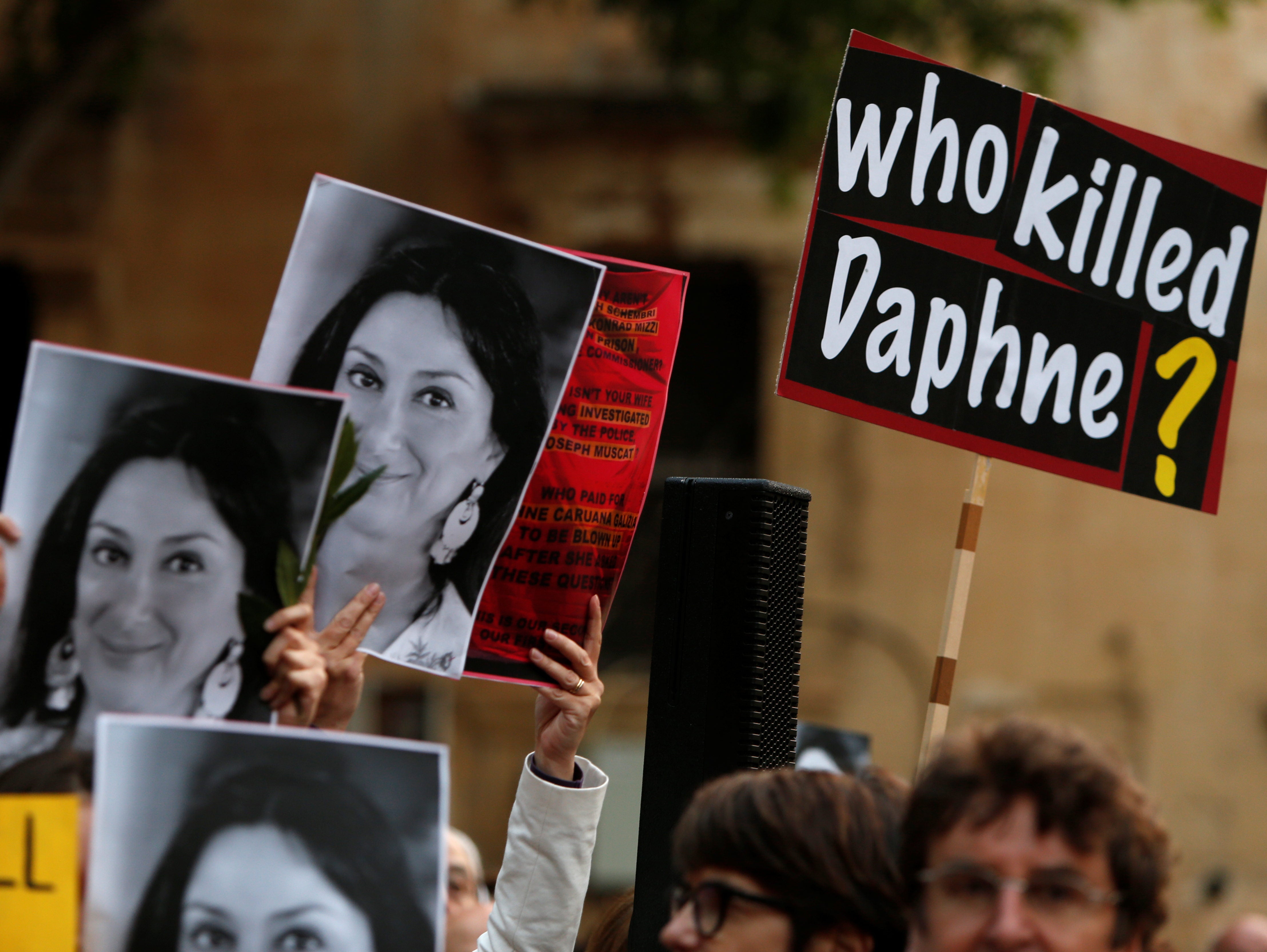
Vigils have been held across Europe and the US to mark six months since Maltese investigative journalist was killed when a bomb exploded in her car.
Daphne Caruana Galizia exposed Malta’s links to offshore tax havens through the leaked Panama Papers and investigated political corruption in the island nation.
Her work will now be continued in The Daphne Project, launched today, which has been led by collaborative journalism network Forbidden Stories.
Forty-five journalists from 18 news organisations around the world, including the Times of Malta, the New York Times, The Guardian, and Süddeutsche Zeitung, have been quietly involved in the project for the past five months.
Two weeks before her death on 16 October last year, when a car bomb detonated as she drove away from her home in Mosta, Caruana Galizia filed a police report saying she was receiving threats.
Three men have now been charged with her murder, but it is still unknown who commissioned the killing.
Campaign groups including Reporters Without Borders, the Committee to Protect Journalists, the International Press Institute, Article 19, PEN International, Index on Censorship and Transparency International are calling for those who were involved in the commissioning and planning of the murder to be identified and prosecuted.
Co-ordinated vigils were held in cities across Europe and the US yesterday, including in London, Amsterdam, Berlin, Brussels, Dresden, Edinburgh, Washington DC and Valletta (pictured).
Around 80 people gathered outside the Malta High Commission in London at lunchtime yesterday to remember Caruana Galizia and renew calls for full justice for her murder.
Addressing the crowd, Caruana Galizia’s son Matthew said: “We’ve hit the six month mark of absolutely no justice, neither for our mother nor for the crimes on which she reported.
“It’s that continued impunity which allowed her to be assassinated in the first place.”
Matthew was himself on the International Consortium of Investigative Journalists team that won the Pulitzer Prize for its work on the Panama Papers scandal.
He added that the case had “set a standard for the European Union where you are allowed to assassinate a journalist and get away with it completely”.
“We have nothing but the three contract killers who appear to have known they were going to be arrested and reached an agreement between them not to speak and not say anything about who commissioned them,” he said.
“The police investigation has hit a complete brick wall and it appears that without this continued support that you are showing here today, we’re not going to get any further than that.”
The day was also marked by a second London event at the House of Commons, hosted by Liberal Democrat MP Tom Brake.
Another of Caruana Galizia’s sons, Paul, along with Rebecca Vincent of Reporters Without Borders and Maggie Murphy of Transparency International, urged UK action to ensure justice and address the wider issue of violence against journalists.
Paul told the audience: “My mother was assassinated for investigating crime and corruption in Malta’s state and government.
“Justice won’t come from the Maltese government. The UK must act together with the wider international community against the network of crime that has taken hold of Malta and eliminated its strongest independent voice.”
Vincent, UK bureau director for RSF, said: “A full six months on, the investigation into Daphne Caruana Galizia’s murder has resulted only in the arrests of a few suspects, and no apparent attempt to identify the masterminds behind this assassination. That is not justice.
“We continue to call for everyone involved in the planning and carrying out of this heinous attack to be identified and prosecuted to the full extent of the law, and for concrete steps to ensure this does not happen again.”
Murphy, senior global advocacy manager at Transparency International, added: “Daphne Caruana Galizia was fearless in her attempts to uncover corruption in her country, one of the most patriotic things a person can do.
“Journalists working to expose corruption and money laundering are vital to the anti-corruption movement and any attacks on them undermine democracy and the rule of law.
“The Maltese authorities failed Daphne by not providing the protection she requested. They must not fail her and her family again by allowing impunity to prevail.”
Picture: Reuters/Darrin Zammit Lupi
Email pged@pressgazette.co.uk to point out mistakes, provide story tips or send in a letter for publication on our "Letters Page" blog
